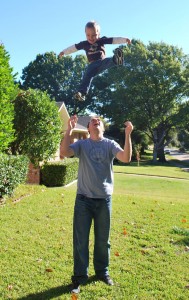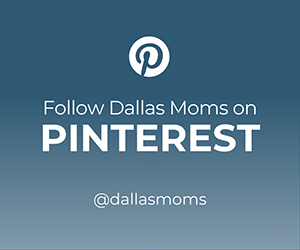I love social media. I never rarely post anything interesting and worthy of “likes”, but it’s an excellent information gathering tool for me. My nerd side loves the the real-time information and news that gets fed into the palm of my hand. Amazing world we live in, but I digress…
Recently an interesting article from Scientific American came across my newsfeed as I was walking from my office to the car in the afternoon. It was a brief adaptation from a book titled Do Fathers Matter? What Science is Telling Us About the Parent We’ve Overlooked.
My first instinct was to dismiss such a silly question. Of course fathers matter, that’s nothing new. But for some reason I was intrigued, so I bookmarked it for later reading.
Later that night, I read the article in its entirety. And if I’m being honest, its indictment on the American Dad scared me quite a bit.
Fathers are disappearing: fewer dads are participating in the lives of their children now than at any time since the U.S. began keeping records.
 For too long, American Fathers have deluded ourselves into believing that the greatest value we add to our families is our income.
For too long, American Fathers have deluded ourselves into believing that the greatest value we add to our families is our income.
I work hard. I’m proud of the work I do for a living. I’m also proud that it enables a comfortable life for my family. I often find myself thinking that because of all that, I’m doing my job.
It’s a lie, and behavioral science is finally catching up and proving it. These studies (such as the one I linked above) prove that, above almost any other factor, the personal engagement of the father is an incredibly accurate predictor of childrens’ mental health and stability.
When Koestner and his colleagues examined all the factors in the children’s lives that might have affected how empathetic they became as adults, one factor dwarfed all others—how much time their fathers spent with them.
As Nathan alluded to on Monday, while our paying job does bring home an income — which is important in providing a sense of security for our children — the real job is what happens when we come home; the role that doesn’t ever go away. There’s more at stake than just looking back and regretting time not spent. And while it’s great news that it’s now proven that fathers are needed, the pressure is now on us to get it right.
 Fatherhood is about helping children become happy and healthy adults, at ease in the world, and prepared to become fathers (or mothers) themselves. We often say that doing what is best for our kids is the most important thing we do. The new attention to fathers, and the research we have discussed here, should help all of us find our way.
Fatherhood is about helping children become happy and healthy adults, at ease in the world, and prepared to become fathers (or mothers) themselves. We often say that doing what is best for our kids is the most important thing we do. The new attention to fathers, and the research we have discussed here, should help all of us find our way.
So to all the Super Dads out there:
Tickle and rough house with your children, teach your sons how to pee outdoors, and your girls how to change a flat tire. Love your SuperMom like crazy. Provide for their financial needs. But above all else, be present and allow your children to learn from you through your actions and words.
And to all the Super Moms:
Let your SuperDad be himself, and let him share in the responsibilities of molding your children. Hold your gasp when he throws your princess a bit too high in the air or pushes her a bit too high in the swing. Don’t get too frustrated when he dresses your son in plaid shorts and a striped shirt (not that there’s anything wrong with that…). Dads are different than moms but we need them–for more than their paycheck!
* * * * * * * * * * * * * * * * * * * * * * * * * * * * * * * * * * * * * * * * * * * * * * * * * * * * * * *
 Tim Hurst has been married to his beautiful wife Krystal for 15 years and is the encouraging support behind Dallas Moms. They have four very active boys (ages 9, 7, 4, and 2) that currently dominate every aspect of their life.
Tim Hurst has been married to his beautiful wife Krystal for 15 years and is the encouraging support behind Dallas Moms. They have four very active boys (ages 9, 7, 4, and 2) that currently dominate every aspect of their life.
During the work week, you’ll find him managing software consultants at Pariveda Solutions. On the weekends, he’d like to spend his free time working on the latest home improvement projects, but usually ends up spending the morning (and his money) at Costco.













